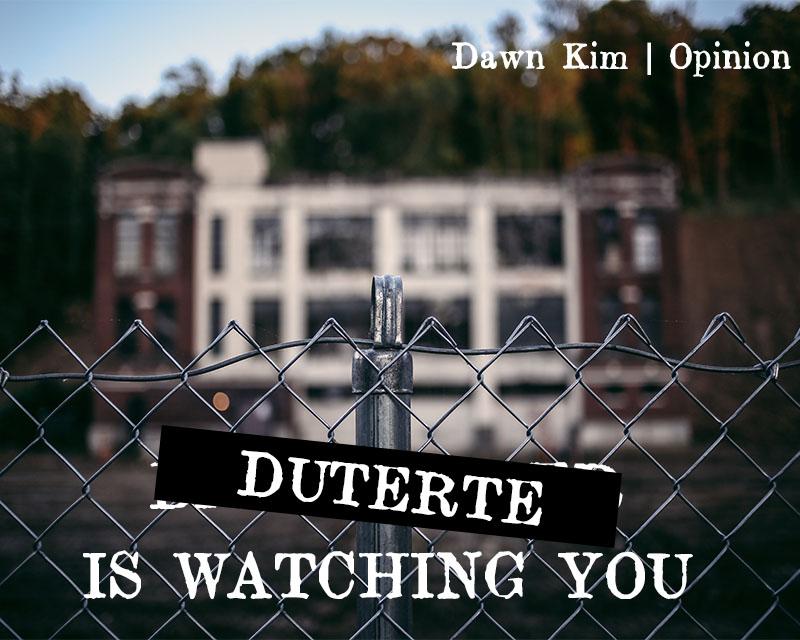“Political language is designed to make lies sound truthful and murder respectable, and to give an appearance of solidity to pure wind. ”
– George Orwell, 1984
So far, there have been two movie renditions and two TV series based on George Orwell’s novel 1984. But looking at the state of the Filipino war on drugs, I cannot help thinking that this “war” may be the greatest real-life example of Big Brother, dolled up and hidden behind the trusty back of president Rodrigo Duterte.
For a president who has spent just over six months in the office, President Duterte has already established an infamous affront. Elected on May 9 with the promise to purge the “narco-state” of its drug users, Duterte enacted a “war on drugs” starting in July 2016. The policy predominantly featured the use of a shoot-to-kill policy; A clause regarded as part of what could have benefitted the country, but instead licensed, if not encouraged the police kill at will, provided that the individual was a suspected “drug user.”
An opinion piece written by Robert Muggah for the Guardian says it all, describing the war on drugs as an “out of control bloodbath,” complete with overcrowded prisons and state-sanctioned killings – with no due process. The article was published in Jan 5, just two weeks before newspapers revealed the death of businessman Jee Ik-Joo, who was kidnapped and strangled to death while working in the Philippines. The case could have been easily dismissed – according to the Agence France-Presse, a French international news agency, nearly 50 Koreans have been killed in the country since 2012 – if not for the fact that Jee was unlawfully detained and murdered by members of the Philippines National Police (PNP) on false charges of having conspired in an illegal drug trade.
In retrospect, it would not be amiss if the public simply thought of Jee’s death as one some 7,080 casualties of the War. But going above and beyond his identity as a Korean businessman, Jee’s murder is a scary realization of the function of the government–or more accurately, the newfound might of the government’s power. By giving the green light on extrajudicial killing, Duterte presented one crucial change that would usher in a neo-1984 esque regime, a totalitarian government that could and does persecute individuals freely with zero backlash. And with Jee’s murder, it has proved so–without the media attention, which as a matter of fact occurred three entire months after Jee’s passing, his story could have been shelved away into oblivion, just as it has been for the 2,555 casualties who have yet to had their deaths investigated. Without the world finally recognizing the reality of the War, the Filipino police could’ve freely continued with planting evidence on individuals, operating in plain clothes to avoid the resulting paperwork, and perhaps worst of all, recruitng paid killers to do what could otherwise be regarded as their dirty work. To protect the wellbeing of a select few citizens, being the small population (2.3%) of drug users, the Filipino government is depriving the citizens of a right considered so vital to be included in the United Nations’ Universal Declaration of Human Rights.
Jee’s death proves two things; One, the police have become amply assured of the power they wield to extend it to foreigners, which would increase the risk of publicizing an issue that was already quite infamous. Two, the government of the Philippines is depriving citizens of their most fundamental rights in efforts to create a “better” nation. 67 years after its publishing, Big Brother and the Ministry of Love has manifested in the form of Duterte and the PNP.
When the rights of the Winstons who dared to react against a tyrant were vaporized to make way for the “greater good” of the “population,” the outer party of Oceania were left with gradually less and less people, a sizable portion completely erased from any memories or record that documented their existence. Assuming this was to continue, who would be left, but the ignorant Proles, and the inner party? Where would the smart, yet obviously powerless outer party have to go, but into the memory holes of disgrace and oblivion? Perhaps the eerily similar circumstances prove that Jee’s death was no mistake, but a devastating alarm to remind the rest of the world of an apocalypse that need not be.

